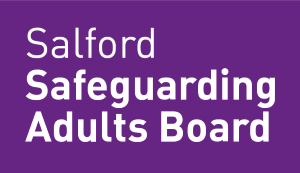Housing has a key role to play in safeguarding.
Salford City Council
Salford City Council has a number of in-house housing services such as the Housing Options Service and Supported Housing Service that provide support to people who are at risk of becoming homeless or who are experiencing homelessness.
The council also works to ensure that landlords who provide rented accommodation in the city provide a good quality service to their tenants. This means ensuring that homes are safe, free from hazards and facilities are in good working order. The council provides information for landlords, including how they can become accredited, a selective landlord licensing scheme in some areas and a landlord forum. The council has legal powers and can taken enforcement action where landlords fail to meet the required standards. For more information, see the council's Enforcement Policy.
Registered Housing Providers
There are a number of Registered Housing Providers in Salford. Housing providers may be the first agency to become aware of a person's developing needs. They may also be the first to identify potential signs of abuse / neglect. Housing providers are uniquely placed and they often will offer tenancy support services to support their tenants to maintain their tenancies. They also have legal tools and powers which they can use to manage the behaviour of their tenants or to protect their tenants from others. This could include, for example, injunctions, community protection notices or in extreme cases possession orders.
There is lots more safeguarding information for partners and professionals and information about the role of housing in safeguarding on the Salford City Council website.
Community Care have published this article, Safeguarding adults who refuse support: how antisocial behaviour legislation may help which explains how this legislation was used in a real case.
Please see Anti-social Behaviour, Crime and Policing Act 2014: Anti-social behaviour powers Statutory guidance for frontline professionals for more information on anti-social behaviour powers, including civil injunctions.
